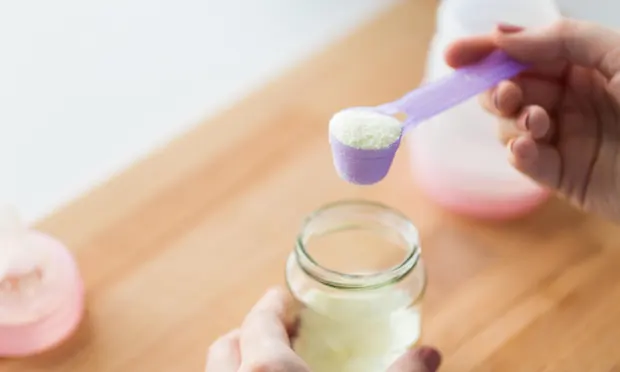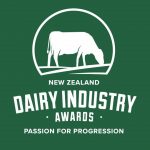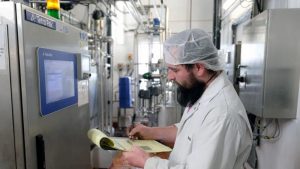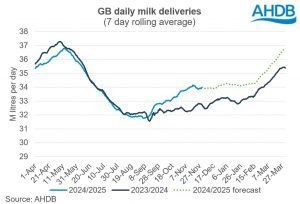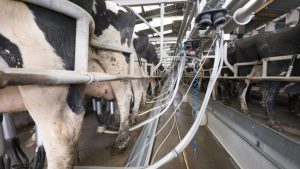
Exploitative and “underhand” marketing of formula milk is preventing millions of women from breastfeeding, according to a series of reports published in the Lancet.
The reports, by 25 experts from 12 countries, including paediatricians, public health specialists, scientists, economists and midwives, finds that the commercial milk formula companies “exploit parents’ emotions and manipulate scientific information to generate sales at the expense of the health and rights of families, women and children”.
Breastfeeding promotes brain development, protects infants against malnutrition, infectious diseases and death, while also reducing risks of obesity and chronic diseases in later life. It also helps protect mothers against breast and ovarian cancers. The World Health Organization (WHO) recommends exclusively breastfeeding babies for the first six months and giving breast milk alongside solid food until the age of two or beyond.
Despite these lifelong health benefits to both mother and baby, more infants are fed formula milk than ever before. As a result, the “economic and political power” of the dominant formula milk companies and countries’ “public policy failures” mean that fewer than half of infants globally are breastfed as recommended, the Lancet 2023 Series on Breastfeeding found.
A common reason women introduce formula milk is interpreting unsettled baby behaviour, especially disrupted sleep and persistent crying, as a sign that breast milk is insufficient.
Over three reports, the series reveals how, more than 40 years since the World Health Assembly developed a voluntary international code prohibiting the marketing of infant formula, widespread violation of the code persists, with promotion of infant formula milk continuing in about 100 countries in every region of the world since the code was adopted.
The series highlights the growing role of social media, with industry-paid influencers sharing the difficulties of breastfeeding as preludes to formula milk marketing, and industry-sponsored parenting apps with 24/7 chat services that enable product placement, offer free samples or deals, and promote online sales.
“There is no other food product for which there is an international code of marketing. Infant feeding affects survival, lifelong health and child development. That makes how it is sold different to deciding what fridge or running shoe to buy,” said Dr Nigel Rollins, a co-author of the series and a paediatrician in the department of maternal, newborn, child and adolescent health at the WHO.
“The sale of commercial milk formula is a multi-billion dollar industry which uses political lobbying alongside a sophisticated and highly effective marketing playbook to turn the care and concern of parents and caregivers into a business opportunity.
“It is time for this to end. Women should be empowered to make choices about infant feeding which are informed by accurate information free from industry influence.”
The authors argue that voluntary uptake of the code is not enough and call for an international legal treaty to regulate lobbying and the commercial marketing of infant formula milk to protect the health and wellbeing of mothers and families.
In the UK, experts called for immediate action. “The UK government, despite being one of the strongest supporters of the code in 1981, still has a poor record on support for breastfeeding and a narrow law that bans promotion of formula (not bottles and teats) and then only to six months,” said Patti Rundall, policy director at Baby Milk Action and global council member at the International Baby Food Action Network. “So there is widespread advertising of a wide range of follow-up formulas and products that are cross promoted with infant formula and industry-linked groups who all conspire to mislead parents and undermine breastfeeding.”
Alison Thewliss, SNP MP for Glasgow central and chair of the all party parliamentary group on infant feeding, said there should be “immediate action to end the harmful and exploitative marketing” of formula milk.
“The UK government must listen to the findings of the Lancet series, and fully implement the WHO International Code of Marketing of Breastmilk Substitutes to protect our youngest citizens from rapacious marketing.”
A spokesperson for the British Specialist Nutrition Association, the trade body that represents the companies producing infant formula milk in the UK, said: “We support the WHO Code and agree that breastfeeding is important for infant health. Our members protect and promote breastfeeding.
“For many babies, infant formula is life-saving and life-sustaining. When parents are unable to or choose not to breastfeed, a scientifically developed infant formula is the only food recognised by the WHO as a suitable and safe alternative to breastmilk.
“Parents should be supported in making their decision about how to feed their baby, and should have that choice respected, whatever their feeding journey.”
